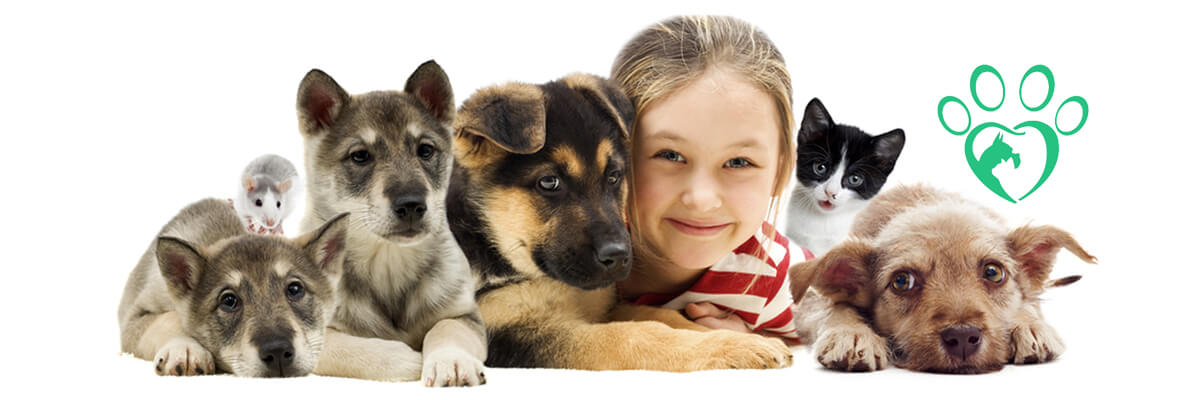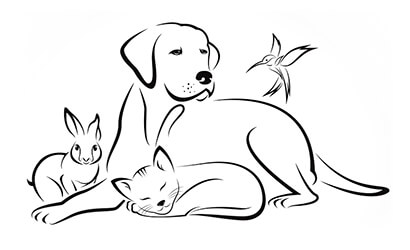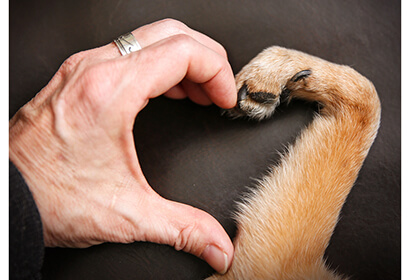
For so many people, pets are an integral part of their lives. Whether their dog is one they have grown up with since the age of two, a service dog that assists with a physical or emotional disability, or is a cute cat that was rescued from a shelter, pets are considered family by their owners. They fill you with happiness and comfort in your trying times and generally make life better, and pet owners strive to do everything they can to ensure their pet is happy and content as well.

Because we understand the important role that pets play in your life, we want to make shopping for their accessories simpler for you. We help by offering honest reviews because we care about you and your pet.
Alongside the other product reviews we offer, we want to offer unbiased reviews on the things your pet needs the most. Reviews on this site include: fetch items that range from high-powered launchers that take little effort on your part to soft indoor toys; and chew toys for light to aggressive chewers. We will also review toys for your cat including hunt and prey toys that target your kitty’s natural instincts; and scratchers so your cats use their claws on something other than your favorite chair. We will also include catnip toys as well as general health and wellness items so that you can take better care of your furry friends with the right products, no matter their age.
If you love dressing up your pets, either to help them stay warm during the winter months or just for fun, you’ll find plenty of cat and dog apparel reviews such as winter outerwear, fun costumes, and a number of accessories perfectly suited for them. When it comes to important and practical comfort items such as beds, scratching posts, carriers, and outdoor accessories, we will provide honest reviews to ensure your pet is safe and comfortable. Also included are items such as leashes, harnesses, and litter boxes.
Safeguarding Your Pet’s Health
StuffPetsLove is a site that is not only passionate and dedicated to reviewing pet products and accessories, but a site that reviews dog food brands as well. We know how important your pet is to you. Many people equate the love that they have for their dogs, cats, and other domestic pets to the love that they have for their children. This means that a lot of time and money is spent on foods that people believe are best for their four-legged “children” to consume. While the intentions are good, pet owners often don’t truly know the ingredients that are going into a pet’s food.

There are a number of terms and phrases in the ingredients list and printed out on the bags of food that don’t make a lot of sense and can be misleading. It is for this reason that StuffPetsLove has decided to take the time to look into different foods and thoroughly review them in detail using clear terms allowing you to make a safe, informed decision regarding your pet’s diet. After all, if your pets are like your children, don’t you want them to eat nutritious food that is as safe as it can be?
Here at StuffPetsLove, we research, rate, and review a wide array of pet food products. We take the time to figure out who actually manufactures and makes each pet food brand, the recall history of the company, and the safety practices that they employ. StuffPetsLove is keen on reading pet food labels to properly interpret the nutritional content of each one and find out where these ingredients are sourced. Our goals are to make sure that any additives included are safe and non-toxic and to supply an abundance of other important information on the products.
Striving to ensure your pet’s safety, we keep track of current and past recalls, by receiving information from a number of sources. We choose to remain unbiased in our findings and look into resources that are based on scientific studies and facts. Our reviews are sourced from an array of places including, but not limited to, internet reports, insider tips, nutritionists, product designers, and more to provide you with a comprehensive resource regarding your pet’s food. It is important to know what is going into your pet’s food before purchasing it, and the only way to do that is by meticulous, time-consuming analysis of the labels. You are a busy person, and likely do not have all of the time in the world to peruse the internet and other sources to hunt for this information. We do all of that for you!
StuffPetsLove is not affiliated with anyone in the pet food or consumer goods industry. Privately owned, we do not take money or samples of pet food from companies that might hope to sway our opinion to give them positive reviews. We also avoid influence from the industry and do not accept paid advertisements from pet food producers.
So, sit back and scan through our list of pet food reviews that will detail everything you need to know about your pet’s food in order to make a more informed decision next time you walk into your pet or grocery store. Being armed with this information could truly make a world of difference for your pet’s health.
Pet Parents: The Trend of Calling Pets “Children”

Dogs and cats were once wild animals that are now being treated in the modern day as family members, and rightfully so. Pets are there for us in our time of need and offer unconditional love and support even if they can’t do so verbally. Some people think that a line should be drawn between treating a pet like a child, who is right?
Treating household pets as humans began with trends such as bringing pets along to human events such as music festivals and weddings. Some organizations even have dogs getting married as charity events, dressing them up in traditional wedding attire such as dresses and tailored suits to walk down an aisle. Often, these weddings are fancier than human weddings, and many people enjoy attending events like these. Dogs are even brought along to actual weddings to serve as ring bearers.
There are even doggy fashion shows that put pets in the spotlight and treat them as if they are human models. The most notable of these sorts of events is the one at New York Fashion Week. Dogs will head down the runway wearing couture fashion items that are on par with the creations designed for their human model counterparts. People can and do dress their dogs up at home in anything that they find to be cute and adorable, much like they would play dress up with human children. The styles range from designer clothing to a basic t-shirt or down coat.
Pet parents not only spend money on fun clothing items to play with, but they also spend a lot of money on purchasing high quality food for their pets, just like people might do for their own families. They want only the best of the best healthy food for their dogs and cats and are on a never-ending search for the healthiest pet foods. Pet “parents” will sometimes spend exorbitant prices to do that, much like a parent might spend twice as much in the grocery aisle for their own family if they can and so choose. Pet owners also spend a lot of money on high-end, well-made toys and will go above and beyond to ensure that their pets have the proper medical care, just like they do for their kids.
Even in the world of social media, not only do people post pictures of their pets on their own pages, an abundance of accounts have actually been created and are dedicated to pets and some even give their cats and dogs human-like personalities online.
So where does the line get drawn regarding people calling their kids pets? That is subjective. Some people would never equate their actual human children to their dogs, while other people could not imagine having a human child and only want to give all of their love, money, and attention to their furry friends. While pets are a lot of work and require the spending of a lot of money, they are not nearly as expensive or laborious as raising a child, even if they are considered family, but money does not define love and care.
How StuffPetsLove Will Create Our Reviews
Many sites online today that review pet food brands often follow what they believe to be a set standard or list of objectives. Yet most, if not all of these sites, lack a foundation of scientific knowledge to basetheir opinions on or a standardized system for how they are rated. Most notably is the lack of scientific knowledge about the nutrition needs of cats and dogs.

StuffPetsLove aims to provide accurate and thoroughly researched reviews based not only on our opinion, but what other people have to say as well, this gives a broader overview for making our decisions and giving feedback. For instance, most sites focus on pet food products that do not list a meat of any kind as their primary ingredient. Yet, for instance, pet nutritionists everywhere recognize that proteins are a cornerstone for the dietary needs of carnivores, which is what our pets are. There are often nutritional ratings based only on the name of the ingredient and not what these ingredients mean in terms of pet nutrition, causing a misunderstanding of certain terms and considering them a negative ingredient when they are often just organ meat.
Since there is only so much space for information on the packaging, it is understandable that pet foods do not focus on nutrition but instead focus almost solely on ingredients. The question then remains whether the food is good for pets, or is just good for the pet food industry or pet owners. These are the sorts of things that will be discussed in detail and resolved in our reviews.
Do Humans Care More about Their Pets Than They Do Other Humans?
People absolutely love their pets, but that goes without saying. Everywhere you look, people are showing off pictures of their pets on their phones and social media pages as if they are human children in an old school wallet being flashed around at work. Around two-thirds of United States’ citizens live with an animal of some sort, whether a dog, a cat, a reptile, or some other animal. Of these pet owners, around 90 percent do consider their animals to be a member of the family, as much as they might consider real human children to be.
Of course, there are benefits to these sorts of relationships between a domestic pet and humans. It is not only service dogs and emotional support animals trained to assist humans that benefit their humans tremendously. A survey done by the American Animal Hospital Association found that 40 percent of married women who were dog owners say they get more emotional support from their dogs than they do from their spouses or their children. This is what the pet industry has called the humanization of pets, and it is what leads people to consider their dogs as kids.

Stories online about animal abuse often get more of a reaction out of people than violence directed at people, leading one to believe that people really might care about animals more than their fellow humans. For instance, when people hear about police shooting dogs, it seems they are more likely to raise funds to help these animals than they are for humans who are in the same predicament.
Scientists and psychologists have often run different evaluation tests to see how people really feel about their pets in relation to how they feel about other people. In one scientific study conducted by Georgia Regents University, 573 subjects were given the question of who they would save in a number of different scenarios where a person and a dog were stuck in the path of a bus. These researchers soon found that the decision to save either one of them depended on three things:
The first factor surrounded the knowledge regarding who the person in danger of death was. The people were more likely to choose to save a dog over a tourist than their sibling or best friend. The other factor was the dog itself. Forty percent of people said they would save their dog over a tourist, but only 14 percent said that they would save the tourist when the animal was just “a” dog, and not “their” dog. Lastly, women seemed to care more about animals than men do according to numerous studies, including this one. Female subjects were more likely to say they would save a dog over a person.
In another example, sociologists at Northeastern University tested this idea by having college students read false news articles about a crime wave in Boston. Three more fake articles were included, all of a similar nature about someone or something getting brutally killed, but with different subjects, such as a puppy, a human baby, an adult dog, and an adult human. Their reactions were gauged upon their emotional distress. The instance that elicited the most emotion was the one about the infant child, followed by the puppy, then the adult dog, and then the adult human.
All in all, it comes down to the idea that people do tend to value animals over other people, at least in most cases. While many consider animals to be more precious, they still engage in practices that seem to suggest otherwise. This is what Chris Diehm, a philosopher, calls a paradox of “cows on our plates” and “cats in our houses.” Are domestic animals that are personally owned considered to have greater value than a farm animal or even a stray animal on the streets? The results are certainly mixed.
Pet Safety: Is There Such a Thing?
Around a decade ago, thousands of cats and dogs perished after they were poisoned by their food. Some of the globe’s largest pet food companies removed more than 100 products of different kinds from the shelves after this event unfolded, leaving many people unsure of what brands of pet food they should trust after such a deep and painful betrayal. Still, to this day, there is no official toll regarding the deaths caused before the pet food recall, largely because the government does not keep track of animal deaths like they do with the deaths of human beings. Experts do estimate around 8,000 pet deaths occured related to this event, a truly heartbreaking and tragic number.

This sort of event serves to represent a lot of what is wrong with the pet food industry and just how little this industry and the government agency that oversees the industry really cares about it. There have been hardly any changes in safety protocol in the manufacturing of pet food in modern history, and this even has implications for food that humans eat. All of this serves as a sort of red flag for other parts of the economy in America where regulators struggle to keep up with global supply chains that are becoming more complex every day.
The majority of pet food is indeed safe for your pets to consume, but recalls are still a common and rather scary thing that happens semi-regularly. While the pet food industry makes slow reforms, those conscious of health and safety are often turning to expensive food alternatives in the hopes of giving their pets and even their human family better food, but usually it is in vain. Many people view their pets as children as well, especially with the delaying or total rejection of parenthood on the rise. Getting high-end pet food is less expensive than childcare and is seen as something necessary to protect their four-legged family members.
Still, pet food health benefits that are claimed, such as healthy skin and coat or healthy joint formulas, suggest that they can treat or prevent common pet ailments. Many pet suppliers like PetSmart even have whole sections dedicated to this idea. Still, there is very little evidence, scientifically speaking, to back up these claims.
Only companies marketing drugs can make claims about preventing or treating ailments. Pet food companies can get away with making claims like this by making them very vague. Even if a company says that their food MAY “support healthy joints” as opposed to bragging that it CAN “prevent arthritis,” the Food and Drug Administration will often look the other way. Those who advocate for food safety are concerned that these loose terms and the way that food is introduced into the American supply chain may pose problems for humans, too.
At the end of the day, as we worry about the safety of the food that we eat as humans, the question is still posed: is pet food ever truly going to be 100 percent safe for pets to consume? It can be hard to say, and truthfully, the best that pet owners can do for their beloved furry friends is to read reviews and spend time focusing on the ingredients list and benefits of the pet food, discerning this information for yourself and not basing your opinion solely on what manufacturers say, who only want you to spend YOUR money on THEIR products.
